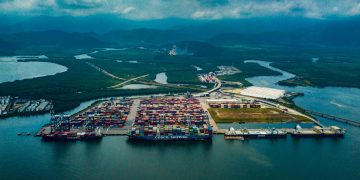When registering a vessel for conducting international travels, a company must select a country under the flag of which that vessel will sail. However, many companies that are based in one country, choose to register a ship on another country’s flag. This video explains why.
A ‘flag of convenience’ regards the registration of a ship in a state different from that of the ship’s owners.
[smlsubform prepend=”GET THE SAFETY4SEA IN YOUR INBOX!” showname=false emailtxt=”” emailholder=”Enter your email address” showsubmit=true submittxt=”Submit” jsthanks=false thankyou=”Thank you for subscribing to our mailing list”]
Vessels registered under flags of convenience can often cut operating costs or avoid the regulations of the owner’s country. To achieve that, a ship owner will find a country with an open registry, or a nation that allows registration of vessels owned by foreign entities.
A ship operates under the laws of its flag state, so vessel owners often register in other flags, aiming to leverage reduced regulation, less administrative fees, and more friendly ports.
However, many nations with open registries are facing criticism for having substandard regulations. It is a fact that many shipowners are allowed to remain legally anonymous in open registry systems, thus making it difficult to identify and prosecute legal actions.
What is more, some ships with flags of convenience have been found to participate in criminal activity, providing substandard working conditions, pollution incidents or illegal fishing. Therefore, vessels carrying these flags could be targeted by other nations for special enforcement when they call in one of the host nation’s ports.

































































